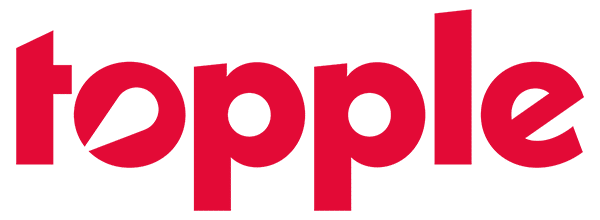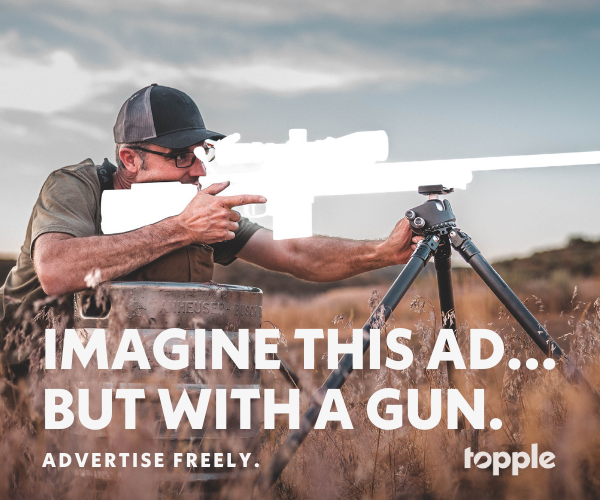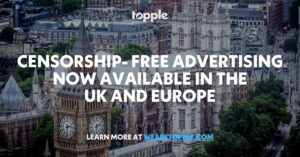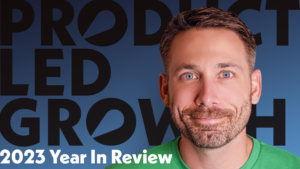Cheech & Chong are the iconic weed duo from Up in Smoke who have been at the forefront of legal cannabis for over fifty years. They’ve dedicated their lives to change the perception of cannabis, and have always had one goal—provide everyone with access to the plant. With that goal in mind, they’re now the brand ambassadors and owners of Cheech & Chong Cannabis.
We sat down with the brand’s CEO, Jonathan Black, to discuss the red tape the industry faces and how the censorship of social media dictates how they can advertise and grow.
Banking red tape, compliance within marketing, and the lack of advertising options are just a few of the hurdles the cannabis industry is facing. Check out why Jonathan thinks federal legalization is the next step for the industry and what he’ll do if they end up on Joe Rogan (hint: he’ll channel his inner Elon Musk, smoke a blunt, and watch the stock prices rise).
Jenna Bostock: Tell me about the inception of Cheech and Chong and your involvement now.
Jonathan Black: The founders of the company are obviously Cheech and Chong. I got brought into the fold because I had helped stand up businesses rather quickly. This is my kind of merry-go-round in the cannabis industry. Cheech and Chong are the legacy guys who started this business when it was taboo and even when it was the black market.
Jenna Bostock: How involved are Tommy and Cheech?
Jonathan Black: Very, very involved. Unlike Coca-Cola, I can’t make a great product here in California, and then send it to somebody in New Jersey or Germany, or anywhere else. The real riddle is, how do I make this brand into the Nike or Apple of cannabis?
Jenna Bostock: What marketing have you been able to accomplish with the market being so heavily regulated?
Jonathan Black: Our biggest marketing push right now is our social media. We have roughly about 20 million fans, between our TikTok, Instagram, and everything else. That was one of the things we had to build up and follow compliance.
We have enormous reach with Tommy and Cheech as a legacy brand.
On our CBD side, we have a massive programmatic spend. The way we can market that is a bit different than how we can do cannabis on regulation side. We’ve been able to have a lot of success with massive spend on programmatic to tell Tommy’s story.
Jenna Bostock: Have you been able to advertise with Google and Facebook?
Jonathan Black: Well, [heavy sigh] not so much Google. I would say that we have been able to use Facebook to do more organic posts. We can say “Cheech will be here at this time for an event,” and use that as a call to action to get them in and see the products.
We can’t come right out and advertise products through that channel. We’ve had to get very creative in respect to what we can and can’t do.
Before my time we had a Facebook page that was pretty massive and got shut off. We’ve learned from that. We’ve grown from that.
Jenna Bostock: What was the reason they gave them for being shut down?
Jonathan Black: Violated Community Terms. It was pretty generic. It was a tough pill to swallow. They had a lot of reach on that. We had four or five million followers. It was good for experience and growth, but it was really tough.
Jenna Bostock: Have you found that you’re only allowed to do very vague brand awareness then?
Jonathan Black: It’s easy to play off of Tommy and Cheech’s association with cannabis. So much that it’s implied when we use them to market. When you see Michael Jordan, you think Nike, think basketball, you think greatness. You have a lot of feelings on that.
When you see Cheech and Chong, you’re thinking Up in Smoke. You’re thinking cannabis. You’re thinking of two guys who started in the industry. Tommy was the first one to actually have a dispensary in a movie, before they even existed. These guys have always been at the forefront of cannabis. It’s a marketplace that’s open to all.
Jenna Bostock: How do you differentiate yourself from competitors to a new audience that generally isn’t even exposed to different brands until they’re in a dispensary?
Jonathan Black: People are going to try our product just because of the nostalgia and who Cheech and Chong are. We have to get them to have it again and again and again. We need to bring about an experience or emotion.
What Steve Jobs did with his marketing was just unbelievable. I remember watching him talk about how milk turned around their advertising department by the absence of milk. He sparked an emotion in the consumer in regards to a product. He brought a feeling to something that generally the computer wouldn’t have a feeling to, right? It’s just an inanimate object, like a pen, or a piece of paper.
These are the things that we strive to excel at. We’re trying to balance that with availability. Getting into the state where it’s legal or medically legal isn’t terribly tough. People want us there, right? We have to make sure it’s quality and that it’s done and supported and marketed the correct way.
Jenna Bostock: Can you tell me some of the red tape and hurdles you’ve had to deal with along the way.
Jonathan Black: We didn’t want it to be another celebrity brand. A lot of celebrity brands just throw their name on stuff and walk away and say, “Where’s my money?” Tommy and Cheech still make appearances at dispensaries. They’re heavily involved. This is about the next generation in the brand and where it can go. Their children are an integral part of running the company. They really want to take back cannabis. Cannabis was what they started to push into the limelight to make it socially acceptable.
We got a call from our partner in Arkansas the other day who said the iconic pictures of Cheech and Chong can’t be on the packaging because the state is upset. They feel like it’s too cartoonish. It violates their rules. We have to make adjustments there now. There are different regulations in every state. Marketing, as far as programmatic billboards, paid ads has been really tough.
Jenna Bostock: Can you take out billboards or commercial radio ads? Or do you just sort of hope you end up on the Joe Rogan podcast?
Jonathan Black: Well Joe Rogan and Cheech have the same agency so hopefully we do end up there! If we do I will definitely smoke a blunt there and see what the stock price does.
You can take out billboards and advertisements but there’s all kinds of challenges in every state. Certain rules are applied differently in every state that have made it very challenging to market.
Jenna Bostock: Were you able to reinstate that massive Facebook page or did you have to build a new one?
Jonathan Black: There’s no moving back once you’re deleted or blocked. You’re not able to argue with Facebook or the community policies. What you need to do is get ahead of it. You have to figure out how to work with them. Whatever they say is the line, pushing that line doesn’t work right now. It will come in time.
When this stuff becomes federally legal, those changes will be applicable here but right now we need to play with them. We can do a call to action without violating the community policies to get them on our side.
We’ve been very compliant. I have a legal background, so compliance is something that we really wanted to focus on. If you spend all that money, say something ‘wrong’ and it gets shut down, that’s pretty painful and a big setback for the company.
Jenna Bostock: Where do you think the market will be five years from now?
Jonathan Black: I think the market continue to grow. People will find a way. There’s a lot of great companies out there that are able to still market cannabis products within compliance structures. Or if they can find ways on Facebook ads, they’ve been able to have some success.
I see banks getting more and more creative with cannabis companies. You’re going to see at least banking regulations change. Then federal legalization. There’s going to be a Supreme Court decision on interstate commerce and how that plays out because licensing costs a lot of money in states. The biggest challenge besides the tax issues is marketing and banking. The compliant marketing drives people a little bit nuts.
Then there’s always the challenge of what people believe cannabis is, or isn’t, right? There’s the stigma that if you smoke cannabis, you sit on the couch and pass out. Or you smoke cannabis, and go rob a bank or whatever it is that people think you’re doing.
In reality, you can smoke cannabis and be very productive. You can go to a concert. You can go work out. You can do it after working out, like you know, like that joint in Pumping Iron. That’s something that Tommy gave to Arnold Schwarzenegger for God’s sake.
I think that cannabis has a place in culture in society. It’s a product that has a lot of health and medical benefits that if positioned the right way, advertisements should be allowed to be just as flexible as alcohol, if not more so because it’s not detrimental to your health the way alcohol is.
It’s amazing because when we watch advertisements for gambling, I always see the warning. I don’t see any of that with alcohol.
Jenna Bostock: Is it easier to advertise on the CBD side?
Jonathan Black: There’s some complications even to the CBD play. It’s mindblowing to me where we draw lines in the sand sometimes with things and how unproductive it can be across the board.
When you look at the complexities of how the programmatic or any kind of advertising works, every state has its own regulations because this is state government market in whether it’s legal or medical.
You really have to be careful if you’re using a marketing agency. You need to go a step further than most companies have to in this process, meaning you can’t just sign up with a company and go for it. There are a lot of things that you need to double-check and act as your own safety net.
Jenna Bostock: Topple’s really helping with that, they’re a company out of Colorado that’s built an ad network that allows brand to advertise anything so long as it’s legal in the jurisdiction it’s being advertised in. I see progress happening in this space.
Jonathan Black: Topple sounds really cool—there’s a need for that for sure.
Advertising has come so far. Yet we still have these cannabis laws that are outdated and lack a general understanding of what’s going on. The states sure do like the money though, they love that tax revenue.
It should be the goal of the government for them to be able to continue to make money and set up systems so people can operate within instead of the complexities and the chaos that exists. Advertising is just another element of free speech, right? Something that we protect. I’ve heard so many horror stories of someone paying for their cannabis online and facing repercussions and that’s just mindblowing.
People come in on certain platforms—that generates ad revenue. When a network decides to kick them off for whatever reason, typically the crime doesn’t warrant the punishment in my book.
Jenna Bostock: How do you feel about the censorship BigTech is implementing currently?
Jonathan Black: Social media was able to shut down a sitting President. If they can do that to a President, imagine what they can do to me.
When I hear about people being censored, being shut down and thrown off networks because of their political views, whether I agree with them or not, it scares me. I don’t like that certain stories are not being released by the press. At one point in this country the media was part of keeping the government honest and kept the public informed. Now when you watch the media if you turn on, CNN or Fox, or any of those channels, it’s so heavily slanted.
I’m in my 40s. When I grew up I didn’t know what my teachers’ political affiliation was. My kids do. They know what their teachers’ affiliations are and I think that’s a damn shame because there used to be a time in this country when people could speak their minds freely and say things without being hated. If a kid wants to wear a Biden shirt, or wants to wear a Trump shirt, they should be able to. If they try that now they’re yelled at and censored.
Cannabis is not the current focus of censorship. Political positioning is. We’re not far away though. We’re continuing to push our politicians to make it legal and with so much going on there’s connectivity between us and the politicians. It’s important that we continue to have people like yourself report things and have free speech. It’s vital to the economy, to the country, and to cannabis.
For the rest of the world the stigma in cannabis is unwarranted and shouldn’t be here. A lot of countries already know that.
America has a chance to show that they’ve been wrong, and it’s okay to correct things. It’s okay to make it right with cannabis.

















